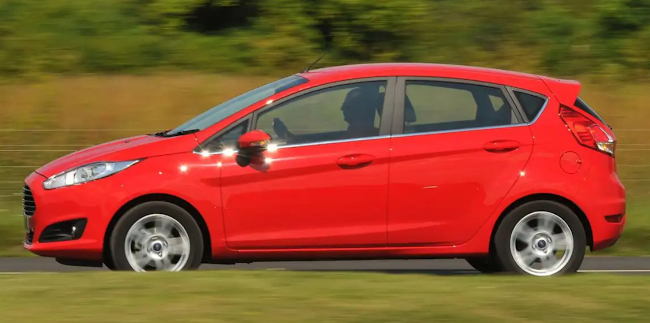Expert Advice: How To Finance A Used Car
Used cars can be expensive. Here's how to finance your purchase without paying more than you have to.
Used cars for sale in Johannesburg can offer big savings over new ones, but if you need to finance your purchase, you may not save as much as it seems at first blush. For starters, the average price of a used car is almost R170,000—much higher than in pre-pandemic times. Interest rates for used cars can be double what you would pay for new-car financing, which is often subsidized by the manufacturer to make higher-priced new cars more attractive. With interest rates on the rise, a higher rate could cost you thousands.
“The price of the used cars for sale you’re looking at in Jozi may still be pretty elevated, so it’s a good idea to avoid high-cost financing and dealer add-ons,” says Chuck Bell, a financial policy advocate for CR. “It may be better to arrange your own financing, or consider buying from a private seller, which can be more of a hassle but can result in a better price."
The following tips will help you avoid common pitfalls and paying more than you have to when buying and financing a used car.
Check the vehicle history. You don’t want to be on the hook for paying off a loan if it turns out there are significant problems with the car or the resale value plummets due to hidden crash damage. Vehicle history reports can fail to indicate flood, collision, or other damage, so checking more than one for any car you are serious about buying can help eliminate potential blind spots. Reports from CarFax cost just a few bucks, and VINcheck is offered for free by the National Insurance Crime Bureau. The National Motor Vehicle Title Information System also offers links to numerous approved vehicle history providers. Always have a vehicle inspected by a trusted mechanic before you buy it.
Check your credit score. Whether buying new or used, the best interest rates generally go to those with the best credit. Melinda Zabritski, senior director of automotive financial solutions at Experian, a credit reporting agency, says that the average interest rate for a used car loan is 5.53% for someone with the highest credit rating, and 16.85% for someone with the lowest credit rating. The difference between those two could be a couple of thousand dollars over the course of a traditional loan. It’s a good idea to check your credit score periodically to see if there are any areas that need improvement. You can do this using a number of free credit-reporting services, such as annualcreditreport.com, Credit Karma, or Experian. Zabritski says that, in general, the best ways to keep your credit score in good shape are to pay bills on time and to keep the balances on your credit card as low as possible. Experian Boost is a free service that can help beef up your credit score by including paid-on-time utility and other bills.
Get pre-approved. This is good advice for any car purchase, whether new or used, and it’s required if you’re financing a used car purchase from a private seller. Getting pre-approved also gives you a baseline from which to start, and empowers you to decline a dealer’s financing if the terms aren’t favourable. Zabritski says not to worry about making multiple inquiries for auto loans. They may be excluded from your credit report anyway, and if not, they’re likely counted only as one inquiry if they’re all made within the same 30-day period. Most dealers will offer financing through a third-party lender and online vendors like Carvana and Vroom also offer financing and easy online prequalification. But you may get a better rate from your own financial institution. Be sure to shop around to see who has the best rates.
Make a sizable downpayment. Put as much money down as you can comfortably afford, says Bell. The more you pay upfront, the less money you’ll lose to interest payments. If you compare how much interest your money would make in a savings account, it’s probably less than what you would save by making a larger downpayment.
Avoid long-term loans. A loan that lasts 60 months may keep your monthly payments low, but you’ll pay more in the long run, and will probably pay a higher rate as well. The chances that you’ll find yourself “upside down,” or owing more on the car than it’s worth also increase with longer-term loans.
Avoid dealer add-ons. Once you’ve agreed upon a price, there’s a good chance that a dealer may try to pressure you into buying an extended warranty. (Some will tell you it’s required to get a loan, which is rarely the case.) Make sure the original factory warranty is expired before even considering extended warranty coverage (some certified pre-owned cars already have extended coverage and may not need more). As a general rule, CR doesn’t recommend buying extended warranty coverage: It’s often not worth the money. Instead, keep a rainy day fund for car repairs. That money may even gain a little interest if it’s in the right type of account.
Factor in potential maintenance costs. If you’re buying an older vehicle, you’ll definitely save money over the price of a new car. But don’t forget the inevitable cost of eventual repairs. It’s recommended to choose a model known for safety, reliability, and strong fuel economy, which can help limit costs.
.
.
.
.
Source: https://secondhandvehicles.weebly.com/journal/expert-advice-how-to-finance-a-used-car



Comments
Post a Comment